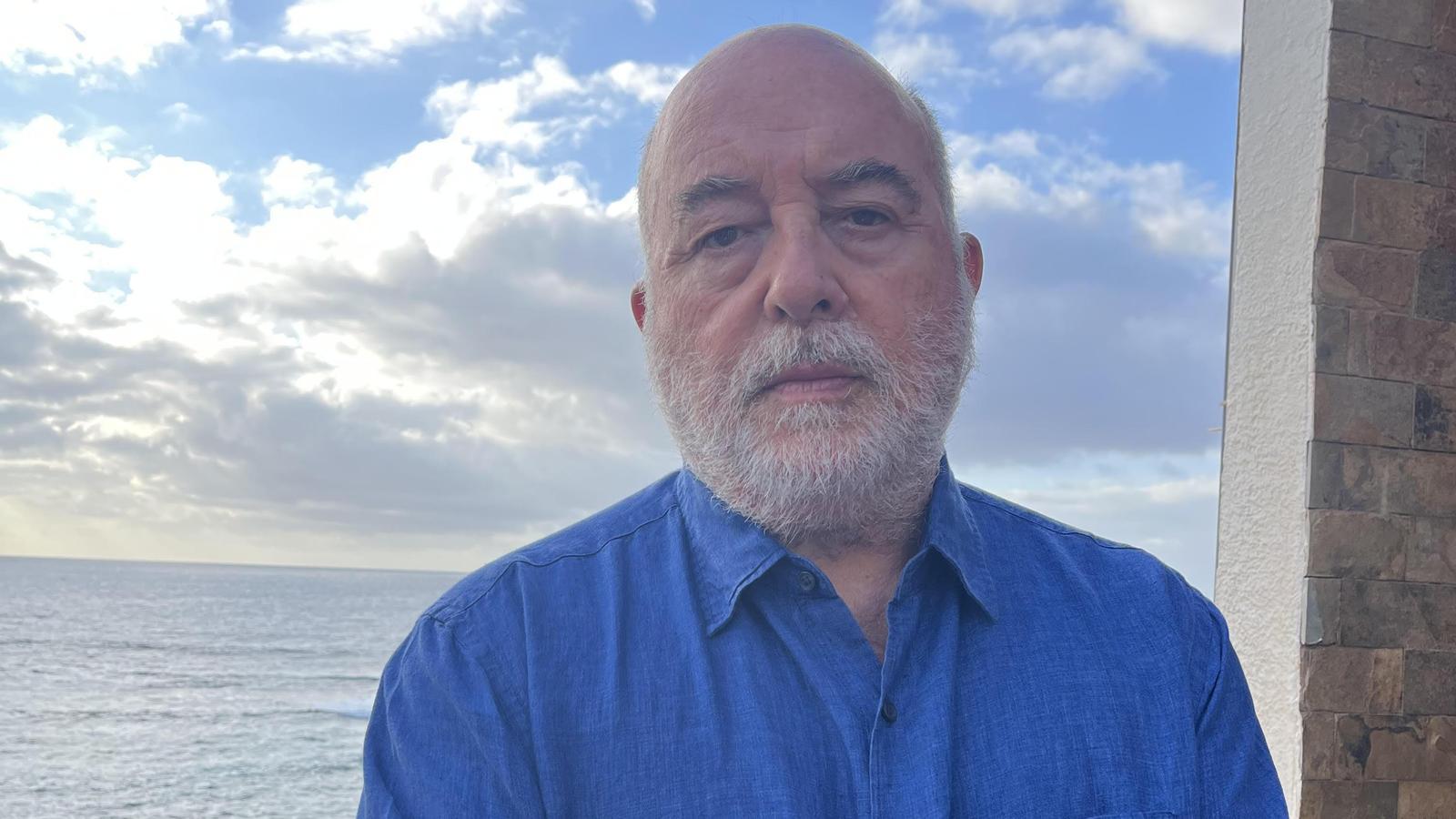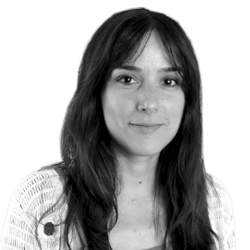Arcadio Díaz: "No matter how much we put threads on the borders, the pressure of people to survive will eventually bring them down."
Judge of the Provincial Court of Las Palmas de Gran Canaria and former judge of the Immigration Detention Center (CIE)


PalmArcadio Díaz, a magistrate from the Provincial Court of Las Palmas de Gran Canaria and former judge at the Foreigners' Detention Center (CIE) in Gran Canaria, has been at the forefront of every migration crisis in the Canary Islands, a route that has been established for 25 years. Speaking with ARA Baleares, he warns that no military or diplomatic action can completely stop the arrival of people by sea, and calls for humanitarian management of a phenomenon that will soon "cease to be news."
Do you think the situation of migrant minors is being used for political purposes?
— Judges are prohibited from criticizing or praising any authority. Without entering into partisan debate, I can assess overall that, in relation to the situation of minors in particular, there is an expression I once heard and find appropriate: "There's too much noise." Issues that should be strictly humane become attacks on one another, where the only innocent parties are minors, migrants. We shouldn't be surprised by differences of opinion. But there are issues that must be kept aside, because they have to do with the strict condition of the human species. Politics is the construction of the polis, the community, and partisan issues are the organizational structures in which people are grouped. Partisan struggle is confused with the construction of the 'polis.' We Spaniards and Europeans need these people, but the needs of our aging populations are ignored and power plays are played out. We live in dark times. The way the situation of minors is used for partisan struggles bothers me.
Why have migrant arrivals to the Balearic Islands multiplied?
— We Spaniards have always lived with the migration phenomenon; either leaving to alleviate hunger or, in recent decades, welcoming people driven by the same thing as our ancestors: to survive and make a living. In the Canary Islands, we have extensive experience with small boats, with the crises of 2006, 2008, 2020... On August 21, 1989, the first one arrived in Fuerteventura: some young men from the Polisario Front with a flag. Since then, the phenomenon has intensified depending on the state of the ocean, Ramadan, whether there is more pressure in Gibraltar or less... Traffickers monitor the situation and leave from one direction or another with one type of boat or another, at one price or another. It's known in advance. No matter what is done, the pressure of millions of human beings experiencing hunger, desertification, and war will continue to exist. Europe needs these people to maintain its welfare state. It's about having sufficient strategic capacity to channel this.
In what way?
— We can try to bring order, justice, and humanity to the situation. This can only be achieved by reaching agreements with sending countries to ensure they don't abuse migrants along the way. From there, sometimes one area of Spain or another will be more affected, such as the Canary Islands, Andalusia, or the Balearic Islands, depending on the weather, the sea, and the conditions at the time. No matter how hard we try to establish a network throughout the area, the pressure on people to survive will eventually overwhelm them. Humanitarian corridors can be established and bring order to the situation.
What does it mean?
— In a democratic society like ours, despite law and order, crimes do occur. Where there is no order or rule of law, as in some sending countries or on commuter routes, there is greater risk. We must try to treat people as we would like Spaniards to be treated. Among Spaniards, we must show solidarity. At the same time, we have the moral authority to demand that all Europeans do the same, because the legal system provides for solidarity. But irrationality is increasingly taking hold. This very basic thing takes hold of people, because in times of uncertainty, any rhetoric that says, "This is mine, and no one should enter," quickly takes hold of people with less cultural background.
The Balearic Government has referred to a Frontex report that highlights the risk of individuals "with malicious intent" sneaking onto the boats. What do you think?
— The argument that criminals, delinquents, and terrorists come from the south is often repeated. It's a very old argument. Among the thousands of people who came to the Canary Islands—and I've been involved in every migration crisis that has come to the archipelago—were there also criminals? True. I've been an investigating judge, I've received these people. Most had calluses on their hands. Were some of them without calluses selling? True. Did people with criminal records come, or who sniffed glue? True. But when this is aired, it doesn't matter because it ignores the fact that 90% of crimes committed in Spain are committed by Spaniards born into Spanish families. It's anecdotal. It's as if, to define an elephant, we focused on whether it has a mole on its right ear. This is part of reality, but it's not what defines the elephant. It's fine that when we describe reality, we state it completely. I accept that, but it's anecdotal. In some places, they continue to insist on linking crime to immigration. Those entrenched in hate speech don't care about the data.
It is a different speech from that of those in the front row.
— A neighbor asked me: "But Mr. Arcadio, why do you defend these black people?" I said: "But, my dear, what you say about them isn't true." "What do you mean, no?" she asked me: "I've seen it on television, in such and such a newspaper." "But, my dear," I replied: "This television isn't the judge who watches them every day." I saw myself as a normal human being. On the contrary, whoever appears on television is endowed with an aura of divinity. We must be patient in telling things. We must try to focus on the vast majority of people, who have good will, and counter that narrative with information, education, patience, so that they know that reality isn't like that. The future of humanity will be one of solidarity or not.
Do you think the police and Maritime Rescue's actions were generally appropriate? Is there a lack of coordination at times?
— There are people who risk their lives and break their souls to care for these people. For years I've seen boats arrive, and the vast majority of people are tremendously supportive. Occasionally, there's someone who needs to put on a display of testosterone and runs after someone instead of offering them water, shelter, or food. But that's not the majority. Generally, people are hospitable, kind, and know perfectly well that any of us would do the same. I was at the Arguineguín dock when I saw people crowded together, who said to me: "Your Honor, this is my third or fourth time." These were people who might be working, but had to return to their country because either they had an emergency or a family member died, and then they had to make the journey again. Generally speaking, most of those who work in these fields try to do good. Sometimes there are coordination problems, some confuse their ideology and plans, but this happens in all professions. It's about understanding that we are all human beings and trying to help each other survive. Therefore, I assume good faith and conduct toward public servants. Now, what's done wrong is done wrong, no matter who does it. People must be educated to know how to coordinate and collaborate. Sometimes people have died five meters from the port because, unfortunately, they don't know how to swim. They drown absurdly. We're getting better at it, but there are things that don't go well.
What do you think of the government's decision to ask Frontex for help?
— I am forbidden from criticizing or praising the government's actions. I cannot answer that question. But I insist on the need to understand the situation faced by the people who risk their lives and those of their children and family members. When they risk their lives and those of their children, it is because the situation they are starting from is desperate. Anyone in their place would do the same. Frontex will not seal off the entire Atlantic Ocean or the Mediterranean. It is about working in the sending countries and fighting the trafficker, not the one who pays them. It is the job of the sending, receiving, and trafficking countries to ensure that the migration phenomenon is not where traffickers profit and abuse.
The number of small boats arriving in the islands is increasing. What advice do you have for your institutions?
— The distribution of Spain's population is the responsibility of the Spanish government, in accordance with Article 149 of the Constitution. Ultimately, this can be done through dialogue, but there comes a time when decisions must be made. Anything that involves reaching an agreement between different authorities in a state like Spain, a complex one with different sources of legitimacy, loyal collaboration, and not using the migration phenomenon as an instrument of aggression and permanent hysteria, is better for everyone without exception. Those entrenched in the migration discourse take advantage of this situation to undermine the democratic system. There are people who, in times of uncertainty, prefer to embrace simple rhetoric: "The black man is taking my job, my apartment, and my money." The second-to-last needs to vent their aggression against the last. Welcoming is seen as natural with white and Christian people, like Ukrainians, but when it comes to people from Mali or Palestinians, it's different because they are Muslims; it's a different culture. My suggestion is that, as far as possible, we should anticipate that these phenomena will continue to exist, ceasing to be newsworthy. This must be managed with common sense and humanity, ensuring that it does not undermine coexistence among Spaniards. We Canarians have endured this with little solidarity from the Spanish people as a whole. There is always room for improvement. The majority of Spaniards, and also Catalans and Balearic Islanders, are normal, good people who want to coexist and survive. There are negative upswings, and not all those who arrive are angelic beings and good people. But it's about distinguishing the anecdotal from the category. Anything that manages this with common sense and a spirit of solidarity is always much better.
